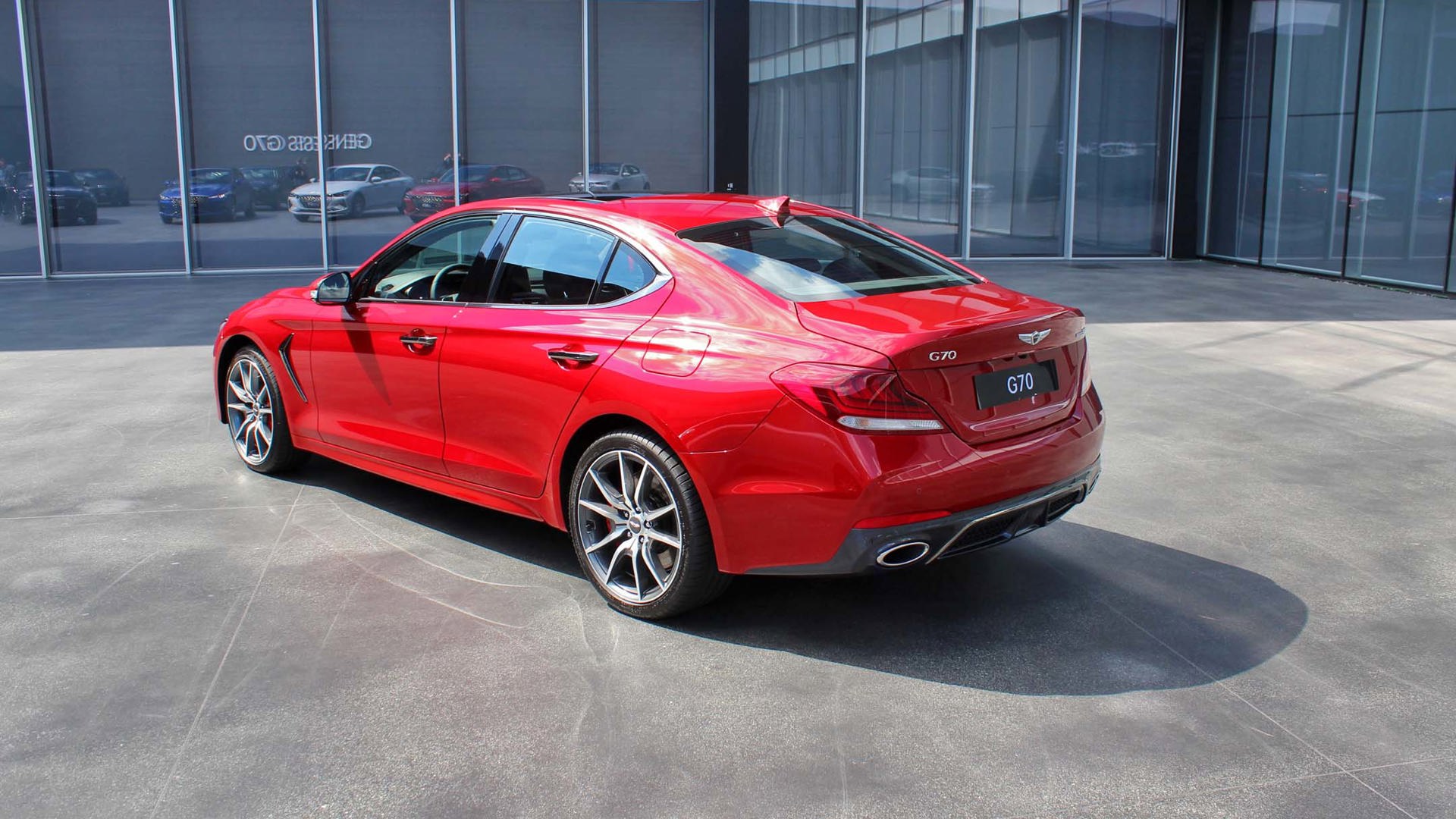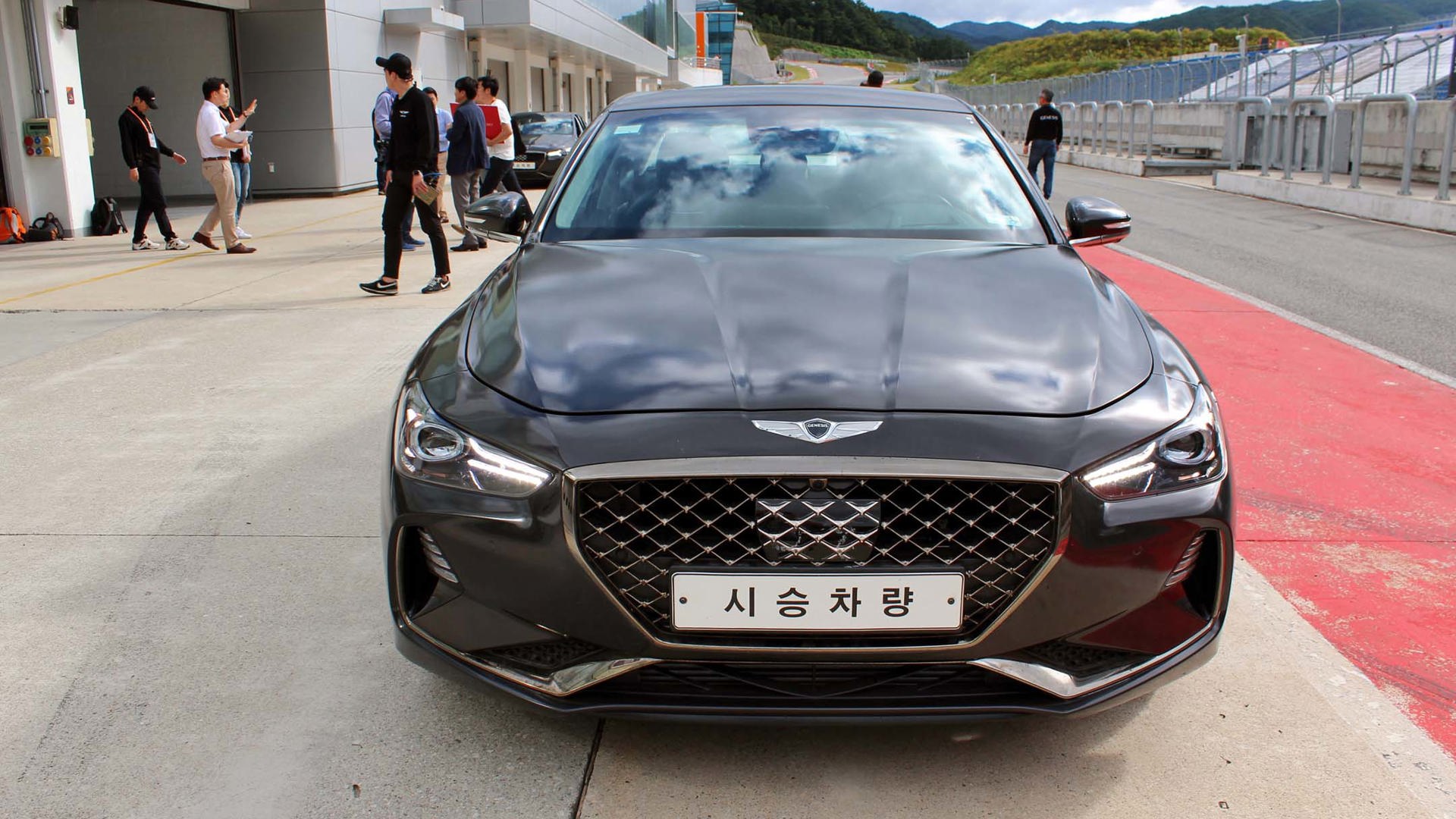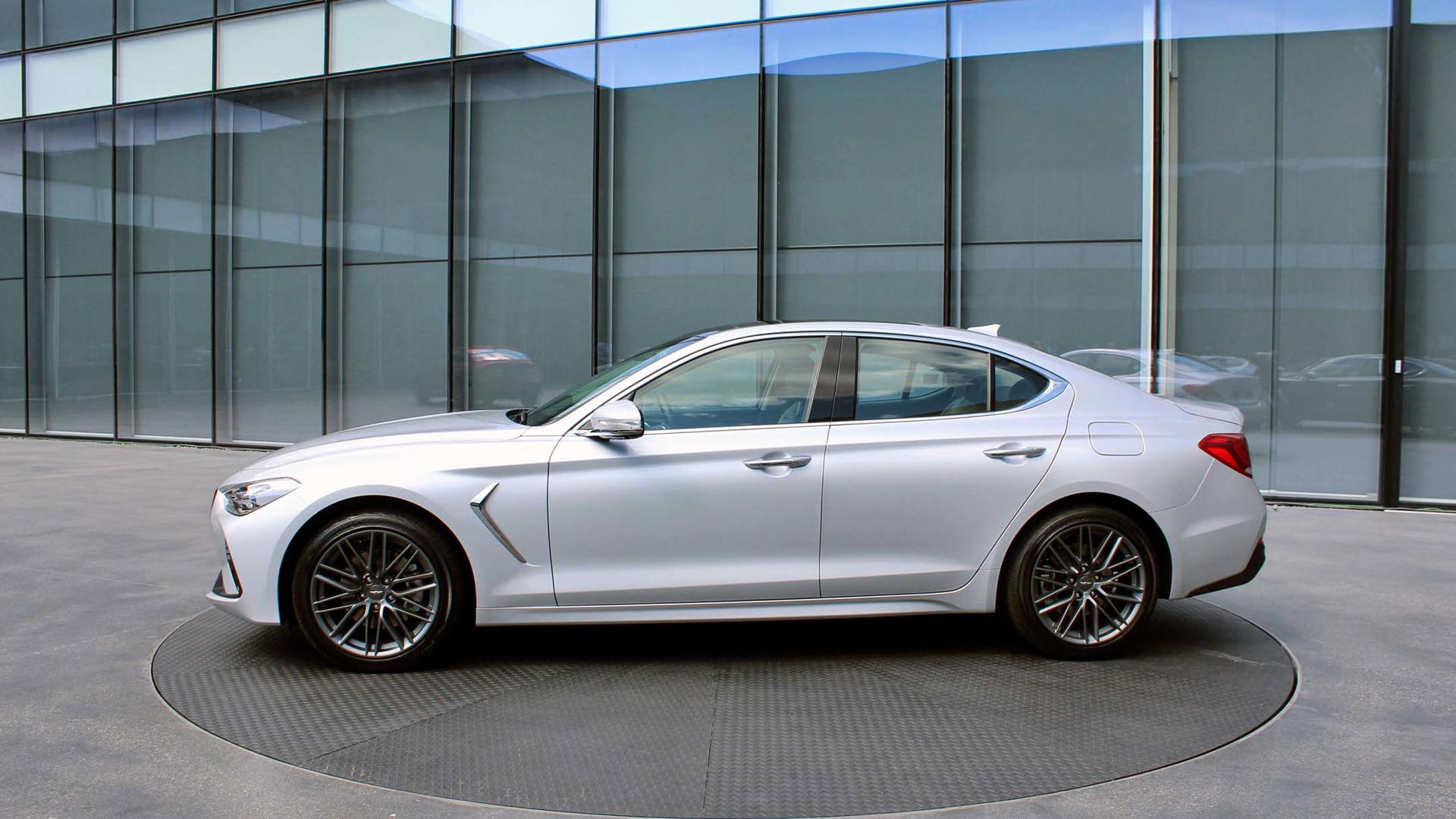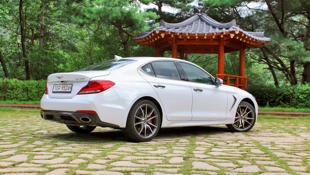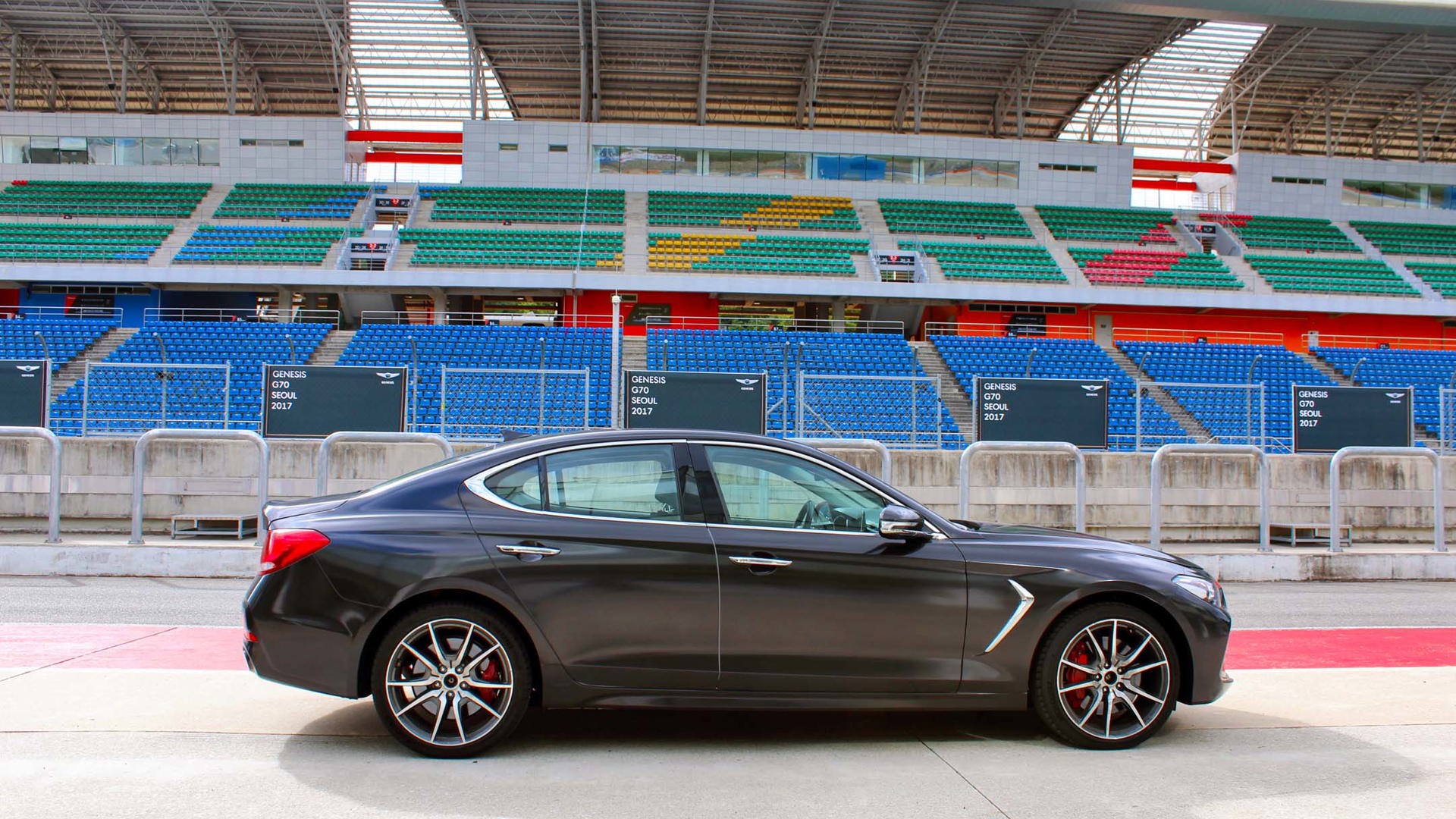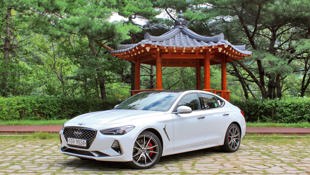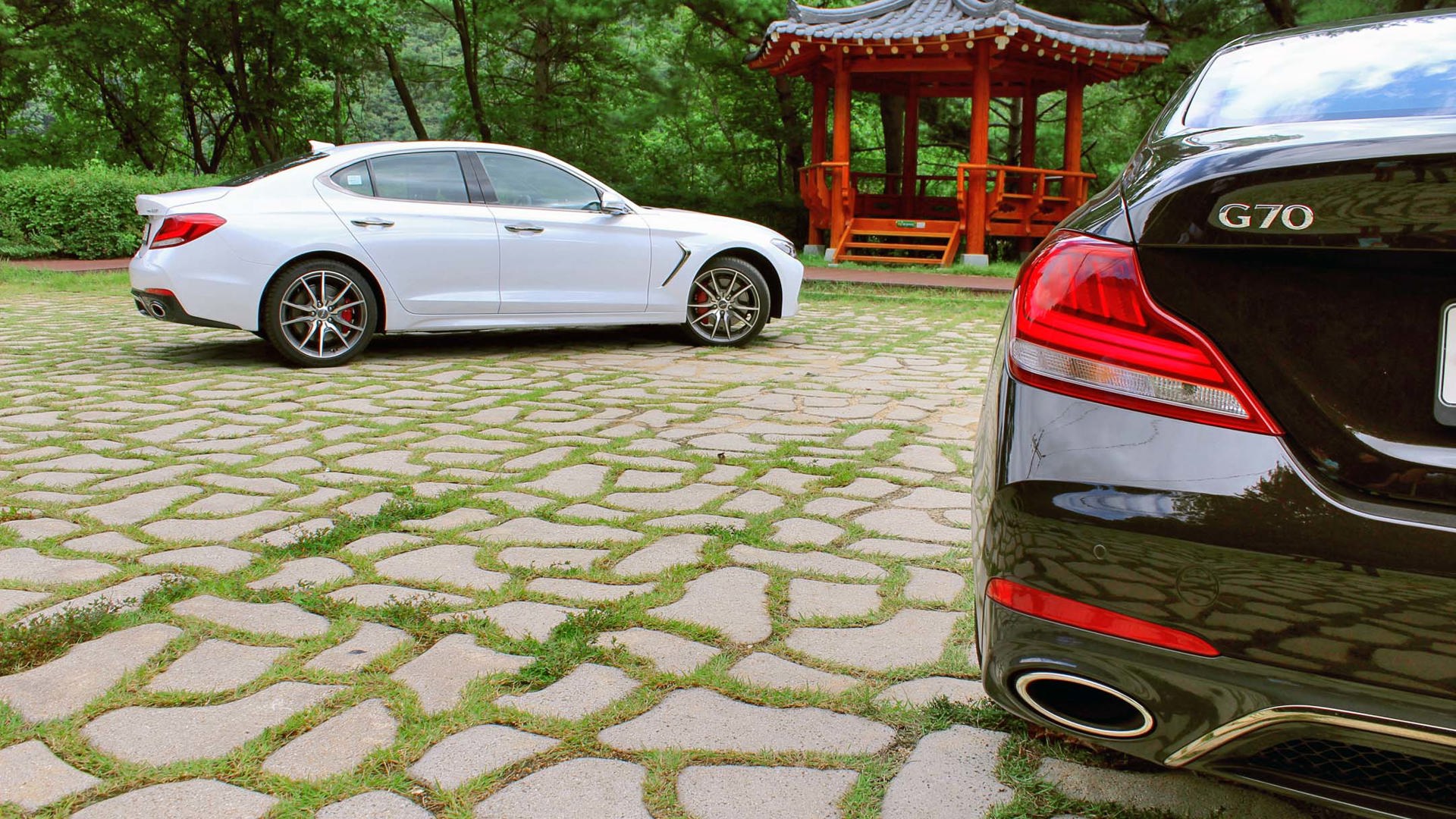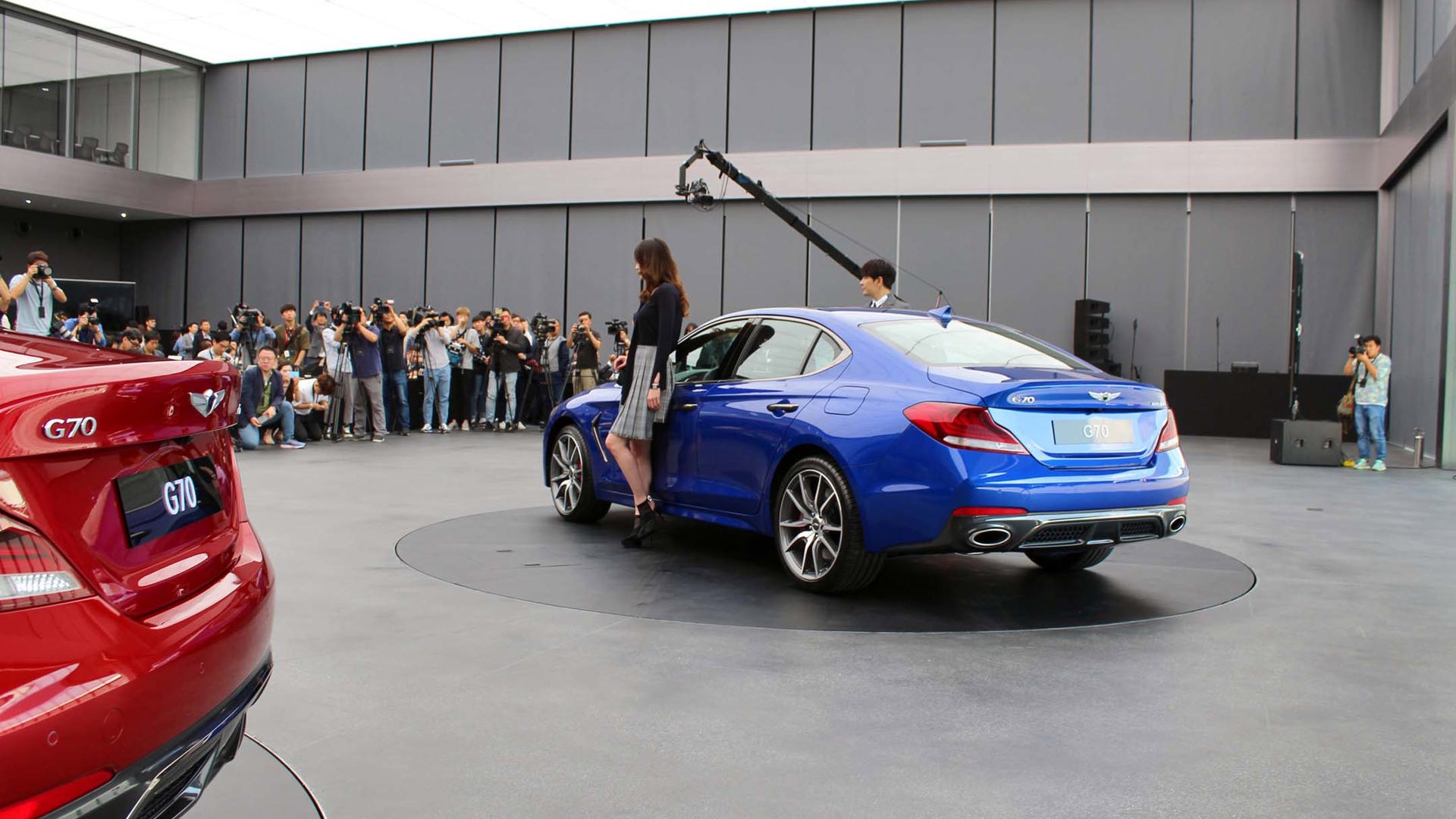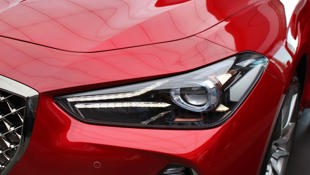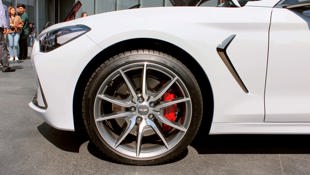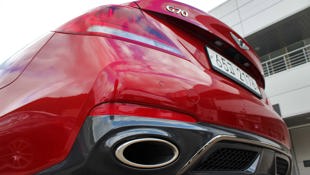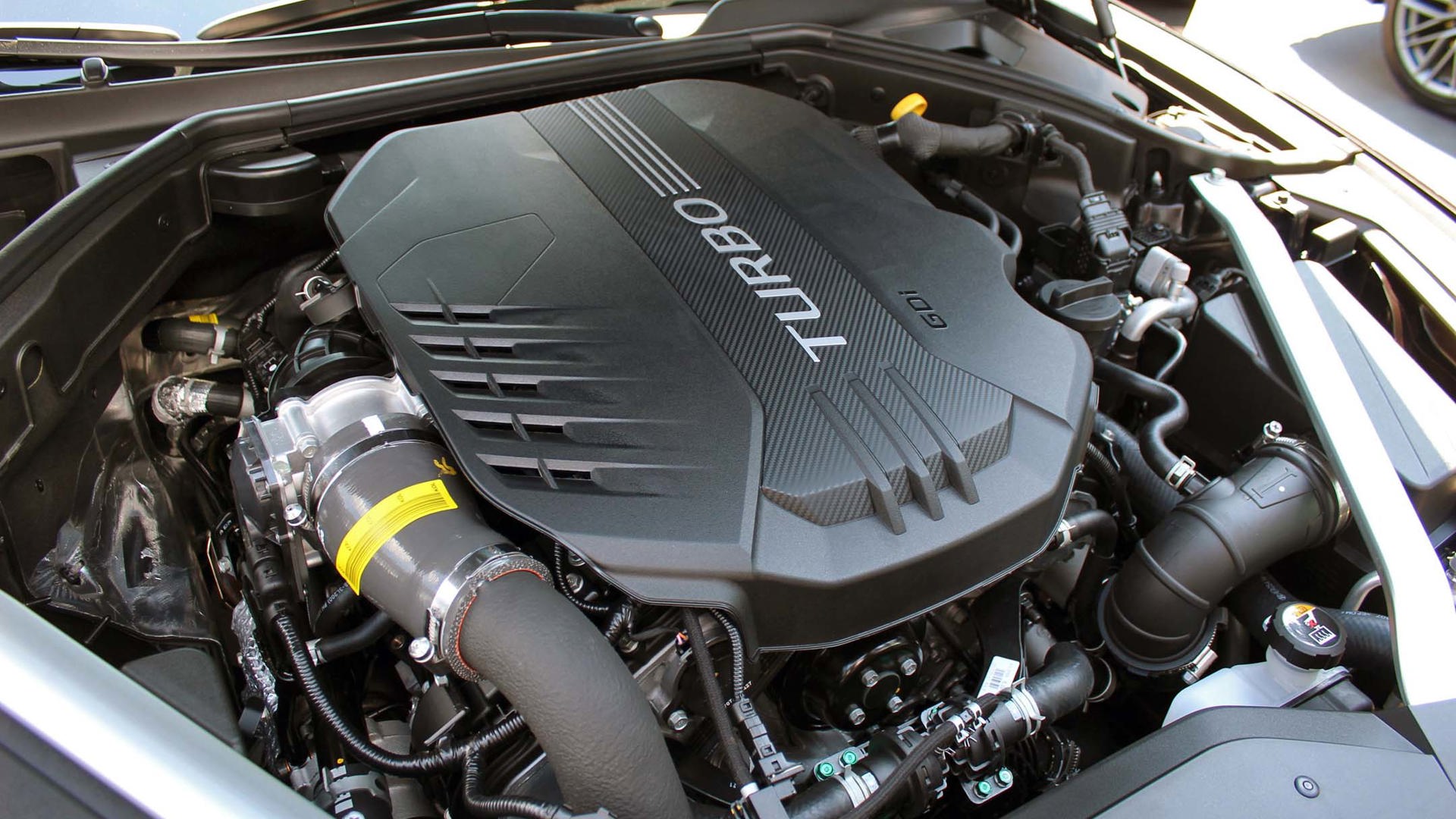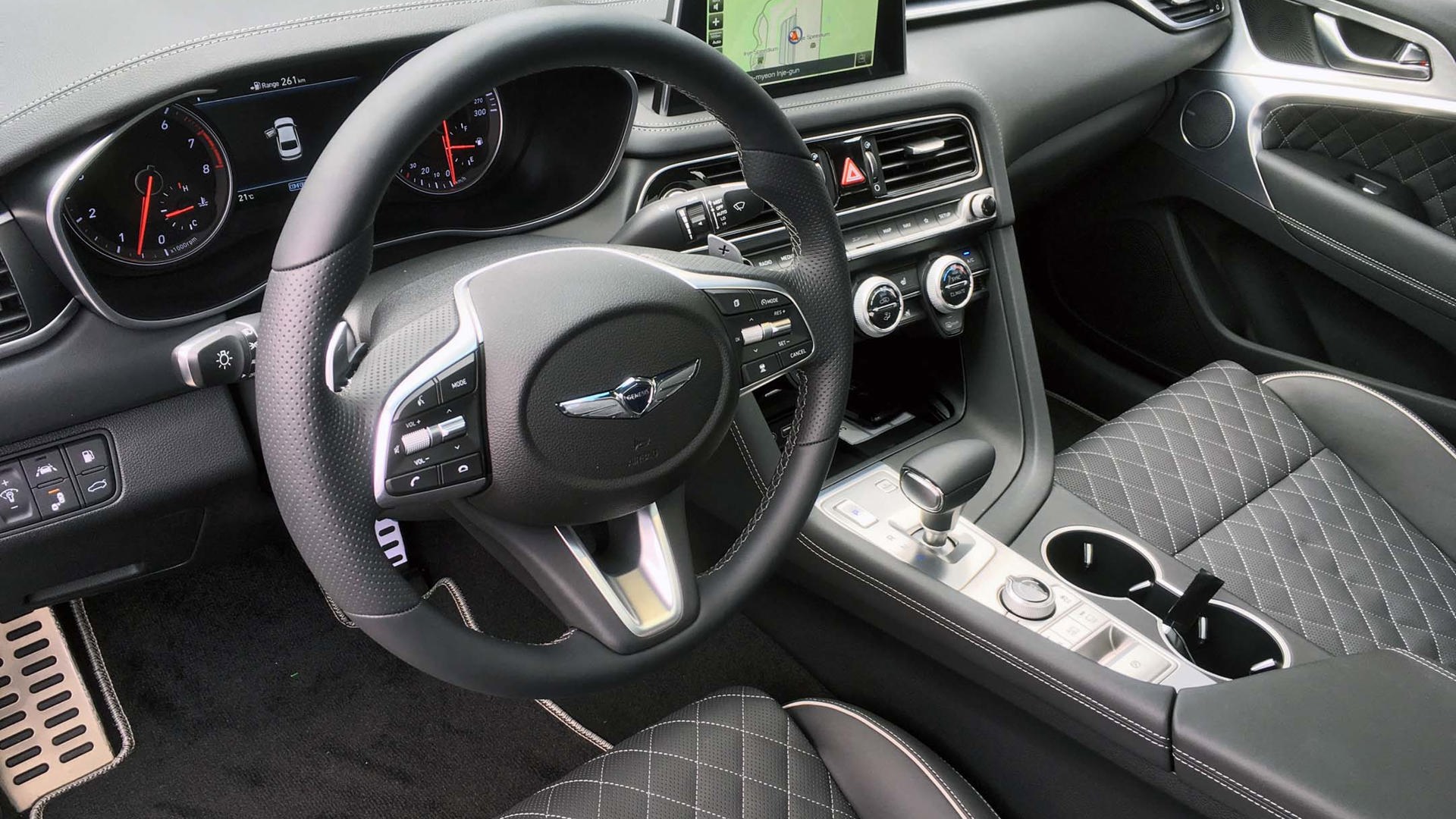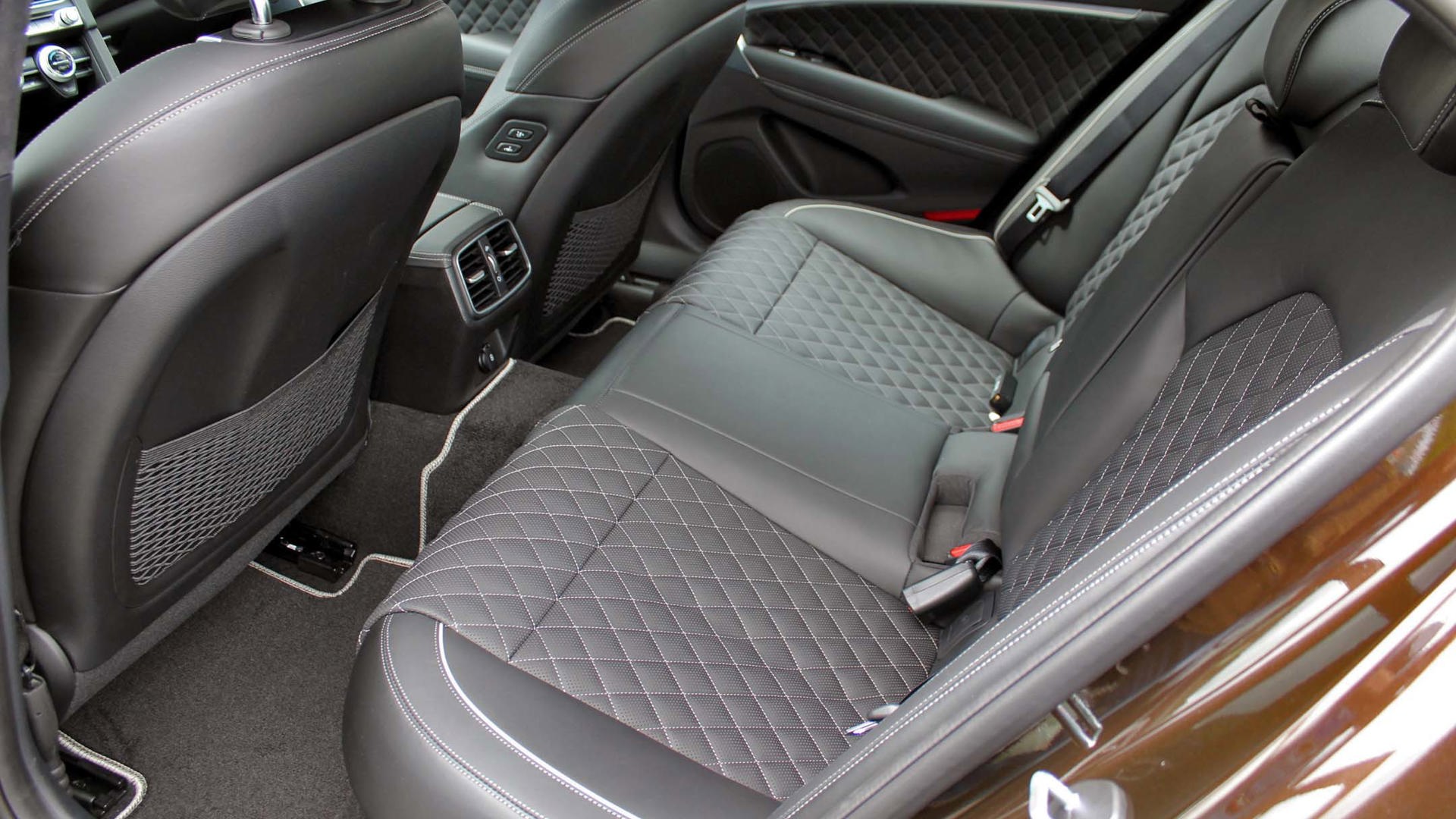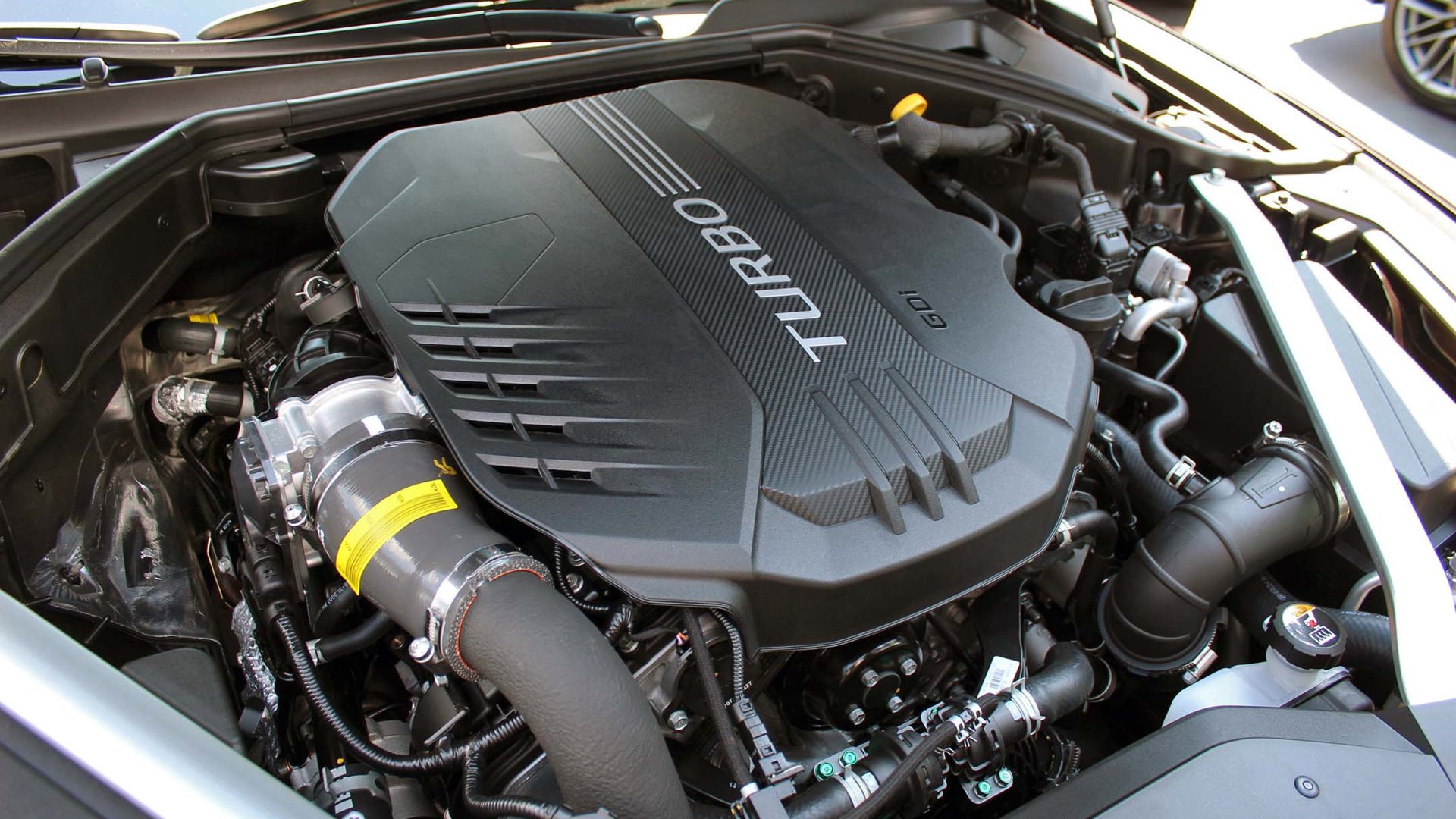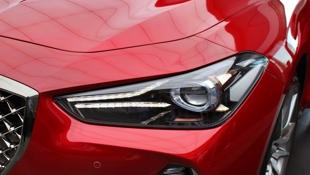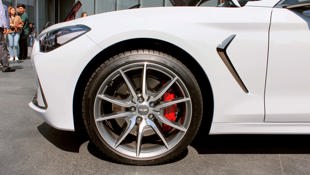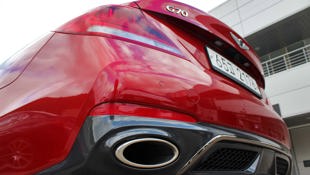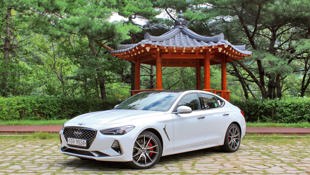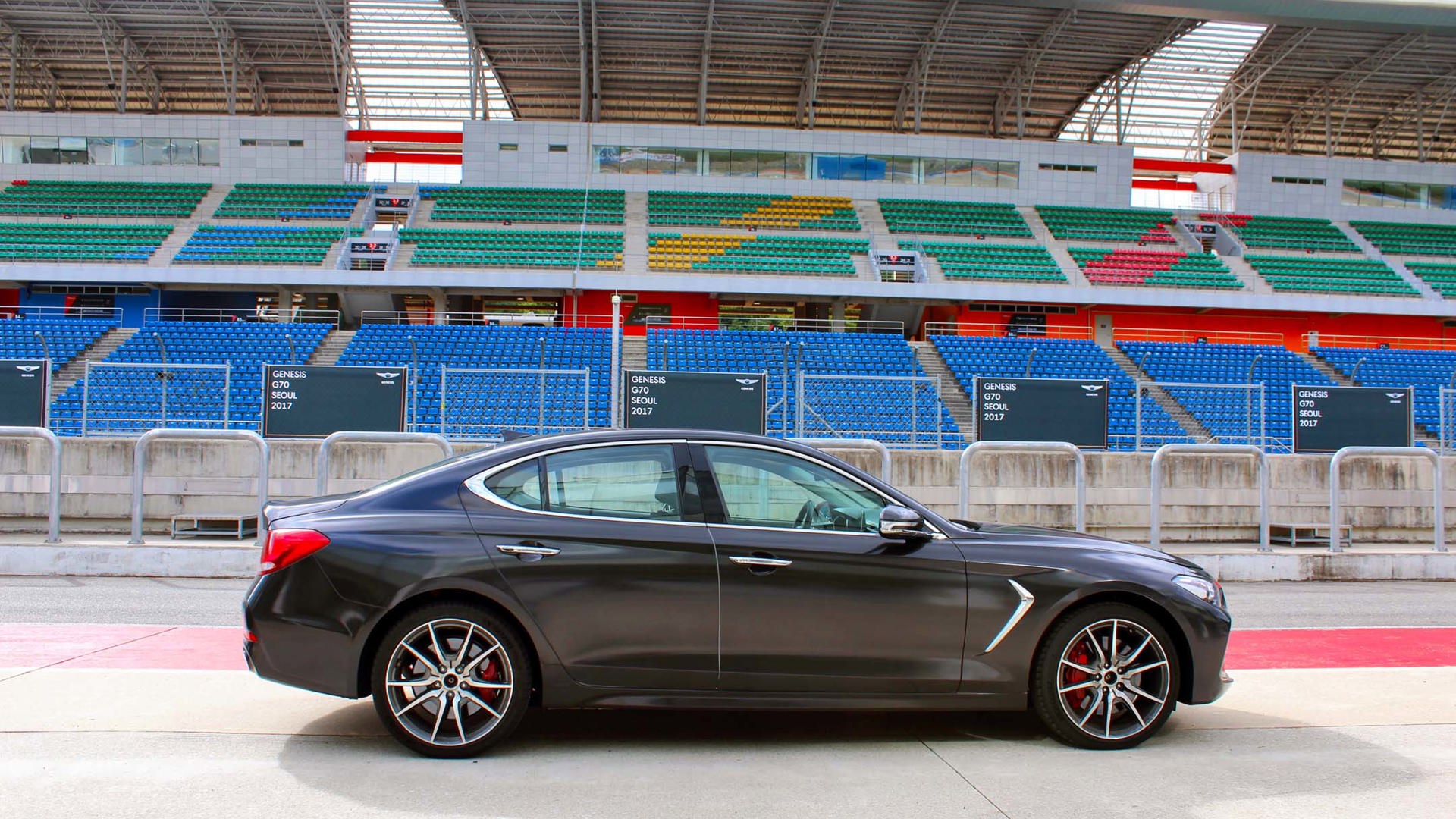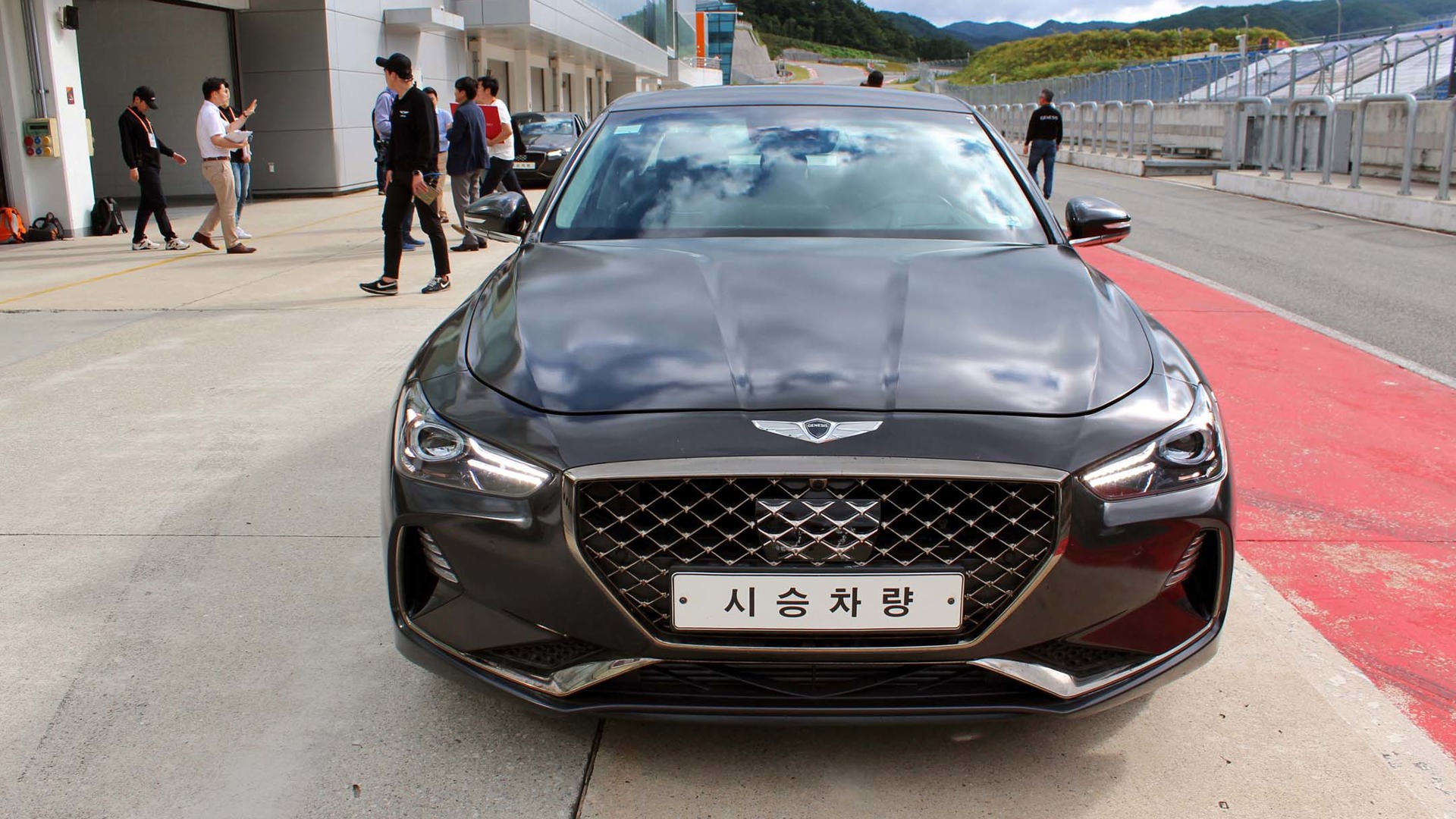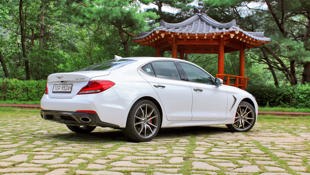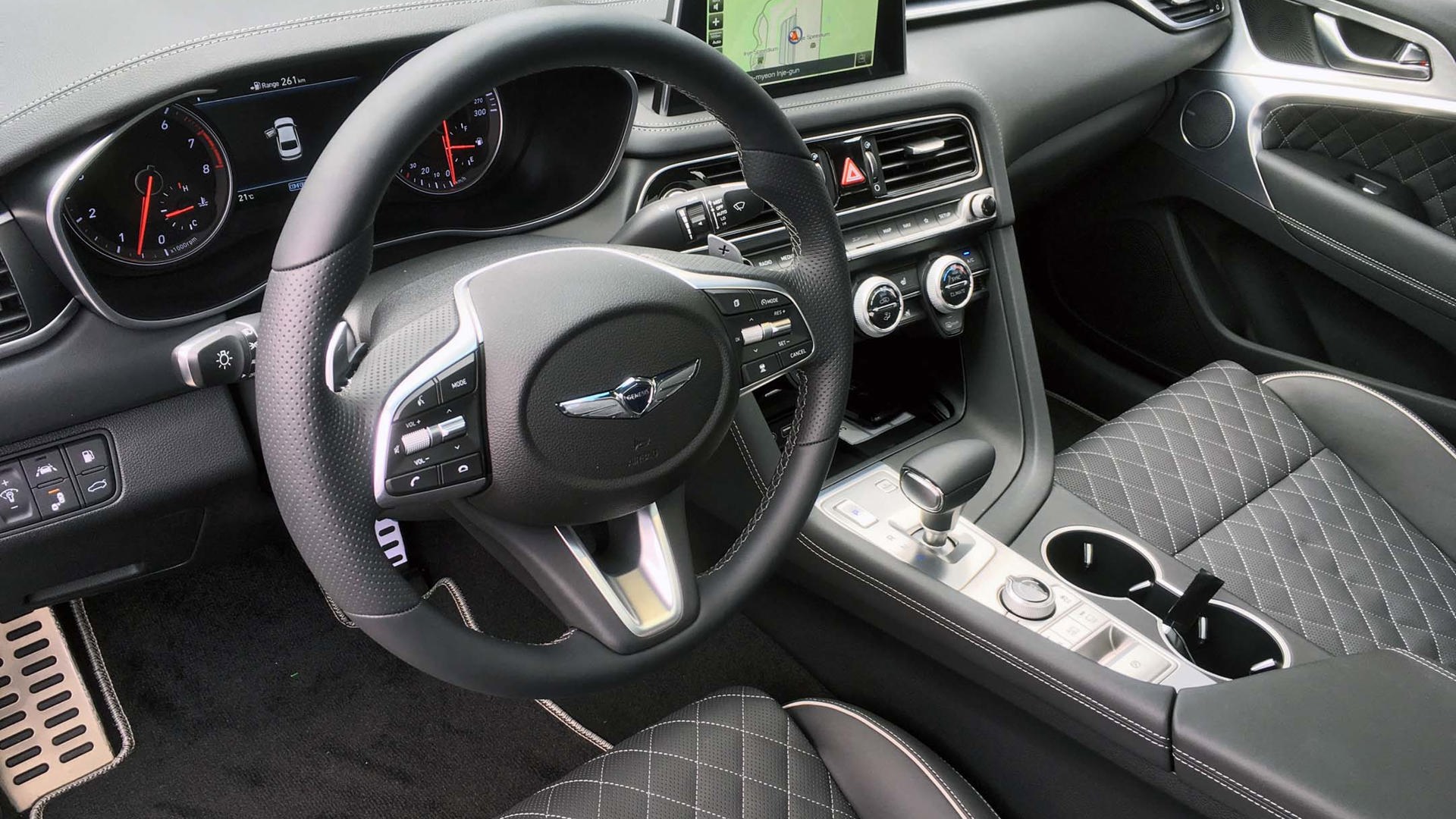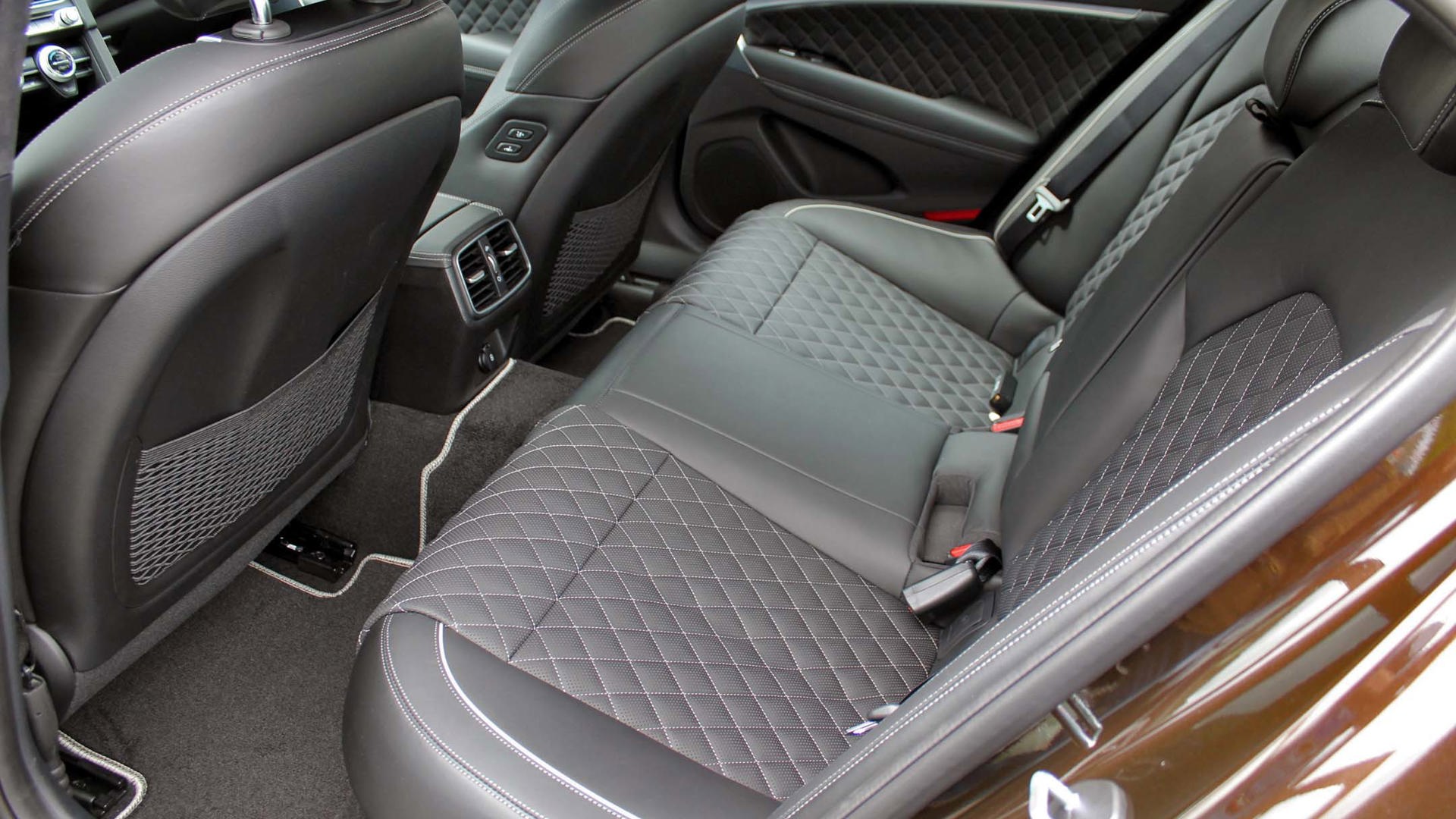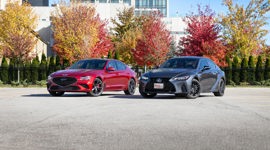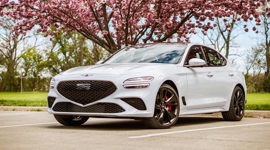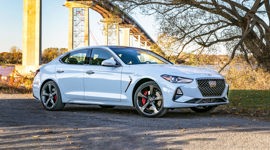SEOUL – In 2015, Genesis became South Korea’s first standalone homegrown luxury brand. Granted, prior to this there were a number of Hyundai cars wearing a Genesis badge, but now we no longer utter the “H-word” when speaking of Genesis. Genesis is to Hyundai what Lexus is to Toyota and Infiniti is to Nissan.
As Biermann said over lunch, “For me the G70 has special meaning. Key targets were driving position and fun to drive, but comfort also was very important.” And then, with a boyish grin, “I burned a lot of tires getting there.”
Are the Koreans serious about this? You bet your Wienerschnitzel and Bitburger they are. They’ve snagged some major talent from Germany to aid in their quest of making Genesis a legitimate premium brand that can stand shoulder-to-shoulder with the big boys: Mercedes-Benz, BMW, and Audi.
The 2018 Genesis G70 sport sedan arrives in Canada for the second quarter of 2018 and it will complete the Genesis sedan lineup, joining the G90 and G80. It will also be Genesis’ volume model – at least until the SUVs come along in a couple of years.
The G70’s biggest challenge will be to make meaningful inroads into the luxury sport C-segment, dominated by the BMW 3 Series, Mercedes C-Class, and the Audi A4. No small task. The competent Cadillac ATS never made it, and offerings from Infiniti and Lexus, as good as they are, don’t run with the German top dogs.
So does the G70 have a snowball’s chance in Seoul of making the Swabian Holy Trinity at the very least blink? After a day of both street and track driving in a full-zoot Genesis G70 3.3 Sport, I’m inclined to put my money on this upstart. Why?
Two words. Albert Biermann.
Herr Biermann came to Hyundai in 2014 after 30 years at BMW – his final post was heading up the high-performance M division. His title here is Executive Vice President of Performance Development and High Performance Vehicles.
Until Biermann came along, chassis dynamics proved to be the piece of the puzzle the Koreans just couldn’t crack. Whatever Hyundai is paying him (and you know it’s a lot), it’s money well spent.
Riding on a shortened version of the Kia Stinger’s chassis, the G70 exhibits poise, balance, compliance, and body control that puts it, if not at the head of the class, then right up there. It’s decidedly sporting yet equally refined and comfortable, and that is the kind of alchemy that money apparently can buy.
The G70 feels distinctly BMW, and as Biermann said over lunch, “For me the G70 has special meaning. Key targets were driving position and fun to drive, but comfort also was very important.” And then, with a boyish grin, “I burned a lot of tires getting there.” Those being 19-inch Michelin Pilot Sport 4s on the G70 3.3 Sport.
Canadian G70 customers get a choice of two engines – the aforementioned 3.3L twin-turbo V6 that makes 365 hp and 376 lb-ft of torque, or a 249 horsepower, 260 lb-ft turbocharged 2.0L four. An in-house eight-speed auto with paddle shifters and all-wheel drive will be standard. The exception will be a North America-only rear-drive 2.0L Sport iteration with 252 horsepower and available six-speed manual. Only the 3.3 Sport was available at this press launch.
Other standard G70 fare includes electronically adaptive suspension, launch control, torque vectoring, mechanical rear limited-slip differential, and a stability control that can be completely defeated. Sounds like a sport sedan wish list, no?
The G70 is a handsome car, if not a complete knockout. It sports a long hood and short overhangs, sitting on the tarmac with a sense of purpose. Its muscular rear haunches are reminiscent of certain BMW sedans, and the snout is dominated by Genesis’ “large crest” grill and a flurry of hungry air intakes. Each headlight incorporates a pair of distinctive linear sweeps of LED DRLs. That theme is echoed in the LED taillights. Just aft of the front wheel wells we find chromed “hockey stick” accents that look… um, very BMW-ish.
Inside, the cabin impresses with exquisite build, high-quality materials and lovely detailing. The seats show a superb blend of comfort and support, here in top-spec Nappa leather. Biermann’s obsession with driving position pays dividends – it’s an intimate cockpit with well-placed pedals and steering wheel. Back-seat room is average for the class, and the trunk has a large opening with low liftover height.
Bucking the trend of most competitors, G70’s major gauge cluster has real analogue dials versus a configurable TFT display. A high-res 8-inch touchscreen perches atop the centre console. Genesis gets top marks for its intuitive infotainment and HVAC controls. There are plenty of easily identifiable buttons and quality burled metal knobs that work with tactile precision. Mercifully, we are not asked to poke away at obtuse menu structures on a touchscreen. The system supports Android Auto, Apple CarPlay, and MirrorLink.
Traffic in Seoul and surrounding environs is a hellish crawling gridlock that never seems to let up, so getting out of the city was a fine time to get acquainted with the G70’s luxury side. Outside racket barely intrudes into the cabin, and likewise, the suspension dispatches most road irregularities with quiet compliance. The optional 15-speaker Lexicon audio in these testers is superb.
Genesis offers a respite from default black with available interior hues that include Sandstorm Gray, Velvet Burgundy, Tobacco Brown, and Vanilla Beige. Sport Grey and Sport Red with be dedicated to the Sport models.
Once off the highway and into the winding mountain roads, the G70 shows its other side. Sport Mode calls up the usual parameter tweaks – firmer suspension/steering, more aggressive throttle response/transmission mapping, and more leniency from the stability control. Additionally, the AWD system switches from a default 60–70 percent rear bias to a more sporting 80–90 percent.
All this would be for naught if the G70 wasn’t able to blend this into a confidence-inspiring, cohesive, dynamic whole. But it does. And unlike the Mercedes-AMG C 43, which could be considered a major competitor, the G70’s ride does not turn flinty and punishing. Yet the Genesis attacks the bends with sharp turn-in, deadly accurate path control, and a sense of communication that feels like… oh, here we go again… a BMW 3 Series of a couple generations past.
The eight-speed transmission is pretty brainy too, slurring gears seamlessly when tooling about and then happily banging off shifts when prompted with paddle shifter inputs. Yep, the G70 was a joy to fling about on these sinuous B-roads, and a further testament to its abilities was its poise on the racetrack. Many sport sedans will go to pieces when flogged on a circuit, and while no road car should be judged on its track performance, the fact that the Genesis just got up on its toes and happily flew around the challenging Inje Speedium in a controlled manner only shows the depths of engineering that went into this car.
And what about the exhaust sound? Outside it was pretty polite, although North American-spec cars will get a slightly louder system. Augmenting that are piped-in engine noises that come through the speaker system.
Naturally, the 2018 Genesis G70 sport luxury sedan will be available with all the expected radar- and camera-based safety kit, part of the Genesis Active Safety Control suite. We’ll have to wait until closer to launch for pricing and content packaging.
There’s no question Genesis is in it for the long haul, and knows establishing itself as a major player will be no easy task in a segment dominated by German marques with decades of history and unassailable pedigree. The Koreans appear to have the hardware part of the equation covered. Now it’s all about perception.
